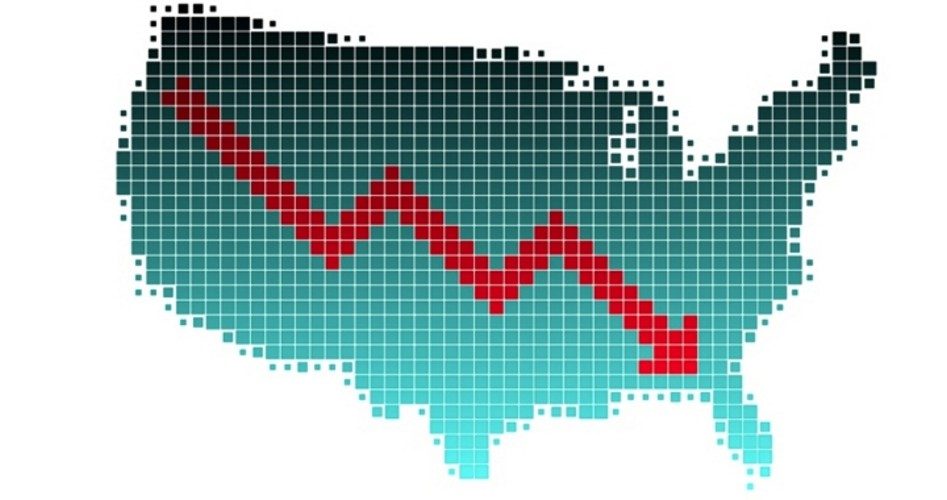
A recent assessment by the Congressional Budget Office paints a bleak picture for the near economic future. According to the CBO, an increase in tax rates in 2013, coupled with government spending cuts, will drive the economy back into a recession, shrinking it by .5 percent in 2013.
Business Insider has summed up the changes expected to take place in 2013, at approximately the same time, and has dubbed it the “fiscal cliff nightmare scenario.” The changes include the following:
• The 2001 and 2003 tax cuts are set to expire.
• The Alternative Minimum Tax (AMT) will hit more people.
• Payroll taxes will increase by about $120 billion in 2013 if the tax cuts expire.
• The sequester will slash defense spending.
• Unemployment benefits are set to run out which could cut payments by about $34 billion in CY [calendar year] 2013.
• The debt limit will also be reached again around the same time.
• Other miscellaneous issues such as “doc fix” and “tax enders” need to be resolved.
The spending cuts came about as a result of the deficit super-committee’s inability to produce a deficit-cutting agreement last year. In the end, Congress produced an agreement that included nearly $1 trillion in cuts to agency budgets over the course of the decade, and required automatic cuts to take place, dubbed a “sequester,” of an additional $1 trillion.
The CBO released its analysis in its annual summer budget update on Wednesday, reporting,
The sharp increases in federal taxes and reductions in federal spending that are scheduled under current law to begin in calendar year 2013 are likely to interrupt the recent economic progress.
By CBO’s estimate, that fiscal tightening will probably lead to a recession in 2013 and to an unemployment rate that remains above 8 percent through 2014.
The CBO’s estimate is based on mandatory spending cuts from the federal budget sequester and the tax increases that will result from the expiration of the Bush tax cuts.
CNS News reports on the single highlight of the CBO’s projections: “CBO estimated that the combination of spending cuts and tax increases would reduce the federal deficit by $487 billion in fiscal 2013, with the vast majority of that figure coming from tax increases.”
But the CBO also estimates that if current tax policies are unchanged in 2013, revenues would be $5 trillion less between 2012 and 2022.
The summer budget update indicates that an extension of the tax cuts would increase economic growth by 1.7 percent and reduce the unemployment rate to eight percent. If taxes were to increase as a result of the expiration of the Bush tax cuts, the unemployment rate would remain above nine percent.
“You can call this a fiscal cliff. You can call it Taxmageddon as others have done,” said Sen. Orrin Hatch (R-Utah). “Whatever you call it, it will be a disaster for the middle class. And it will be a disaster for the small businesses that will be the engine of our economic recovery.”
But despite assertions that the United States is nearing a fiscal cliff as a result of the expiration of the tax cuts and the spending cuts, economic expert Peter Schiff contends that the notion that the automatic spending cuts and the expiration of the Bush era tax cuts will create a fiscal cliff is a bit exaggerated, and has been concocted by those who falsely believe government spending generates economic growth.
As far as the spending cuts, Schiff explains:
People tend to forget that the government can only get money from taxing, borrowing, or printing. … Money taxed or borrowed is taken out of the private sector, where it could have been used more productively. Printing money merely creates inflation. So the automatic spending cuts, to the extent they are actually allowed to go into effect, will promote economic growth, not prevent it.
Schiff continues,
The impact of the expiring Bush era tax cuts is much harder to assess. The adverse effects of the tax hikes could be offset by the benefits of reduced government borrowing (provided that the taxes actually result in increased revenue). But given the negative incentives created by higher marginal tax rates, particularly as they impact savings and capital investment, increased rates may actually result in less revenue, thereby widening the budget deficit.
According to economists such as Schiff, the greater cause for concern than the combination of the expiration of the tax cuts and government spending cuts is the current national debt and the increased burden that will result from a rise in interest rates.
As long as the interest rate remains as it is now, below two percent, the debt service payments is “relatively manageable.” But Schiff warns,
On the current trajectory the national debt will likely hit $20 trillion in a few years. If by that time interest rates were to return to some semblance of historic normalcy, say 5 per cent, interest payments on the debt would then run $1 trillion per year. This sum could represent almost 40 per cent of total federal revenues in 2012!
Still, fears that the changes set to take place next year will create a recession will likely prompt Congress to act to prevent any dramatic shifts.
“The stakes of fiscal policy are very high right now,” CBO Director Doug Elmendorf warned, urging Congress to act in September to avoid the fiscal cliff. “The sooner that that uncertainty is resolved, the stronger the economy would be in the second half of this year,” he stated. “Economic growth right now is being held back by the anticipation of this fiscal tightening.”
Republican House Speaker John Boehner is accusing the Democrats of failing to act to prevent the fiscal cliff. “Instead of threatening to drive us off the fiscal cliff and tank our economy in their quest for higher taxes, I would urge President Obama and congressional Democrats to work with us to stop the coming tax hike that threatens our economy and replace the looming defense cuts with common sense reforms,” he commented.
Graphic: Thinkstock




